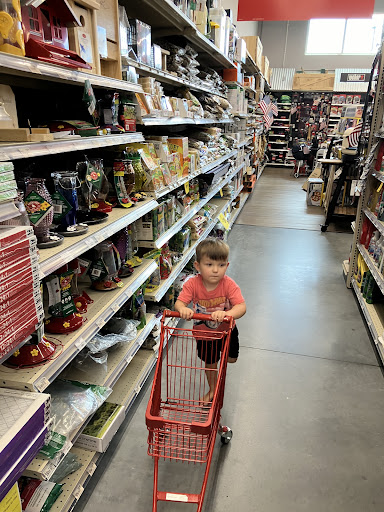Why Small Engine Repair Service Matters for Charleston Homeowners
Finding a reliable small engine repair service can save you money and frustration. When your lawn mower won’t start or your leaf blower dies mid-cleanup, you need fast, trustworthy help.
Quick Guide to Small Engine Repair Services:
- Common Equipment: Lawn mowers, chainsaws, trimmers, generators, pressure washers
- Typical Issues: Won’t start, excessive smoke, power loss, strange noises
- Average Costs: $100-$250 for tune-ups, $50-$90/hour for repairs
- Turnaround Time: 1-3 days for service, 2-10 days for repairs
- What to Look For: Experience, good reviews, clear pricing, repair warranties
The small engine market is vast, with various brands powering the tools we rely on. This makes specialized repair knowledge essential for keeping equipment running.
As one satisfied customer noted about their local repair shop: “Very professional and knowledgeable. I love how they treat customers and willing to help with any matters.”
The helpful team at Lowcountry Ace understands the frustration of broken outdoor equipment. We’ve helped countless Charleston-area homeowners meet their small engine repair service needs through trusted local partnerships, seeing how quality repairs extend equipment life.
Understanding Small Engine Issues: When to Seek Repair
When your lawn mower makes a grinding noise on James Island or your chainsaw quits after a Charleston storm, you know something’s wrong. Understanding when to DIY and when to seek professional small engine repair service can save you time, money, and frustration.
Small engines power the equipment that keeps our homes running, including lawnmowers, generators, chainsaws, trimmers, and leaf blowers. You’ll also find them in pressure washers and tillers. While each tool is different, they all need attention when they start acting up.
Telltale Signs Your Equipment Needs a Professional
Your equipment usually gives warning signs before a complete failure. Recognizing these signals can prevent a minor issue from becoming a major one.
- Engine Won’t Start: If you’ve checked the fuel and spark plug but it still won’t turn over, it likely points to a deeper issue with the ignition, fuel delivery, or compression.
- Excessive Smoke: Blue smoke often means burning oil, white smoke can indicate water issues, and black smoke usually signals a fuel mixture problem. All are signs of engine trouble.
- Strange Noises: Grinding, rattling, or knocking sounds signal internal problems that need immediate attention to prevent further damage.
- Power Loss: If your mower struggles through grass it used to handle easily, the engine is losing strength due to issues like poor compression or fuel delivery problems.
- Leaks or Overheating: Visible fuel or oil leaks indicate failing seals or gaskets. An engine that runs hotter than usual or shuts down unexpectedly requires immediate professional service.
Common Culprits: Problems Plaguing Small Engines
Most small engine problems trace back to a few common issues:
- Stale Fuel: Modern ethanol-blended gasoline degrades quickly, turning into a gummy residue that clogs carburetors and fuel lines.
- Clogged Carburetor: This critical component mixes air and fuel. When gummed up by old fuel, the engine won’t run properly.
- Bad Spark Plug: A dirty or damaged spark plug can’t create the strong spark needed for ignition. They should be replaced regularly.
- Dirty Air Filter: A clogged filter restricts airflow, forcing the engine to work harder, use more fuel, and potentially overheat.
- Worn Belts: On riding mowers, cracked or stretched belts can’t transfer power effectively, leading to poor performance.
- Dull Blades: Dull blades tear grass instead of cutting it, which harms your lawn and puts unnecessary strain on the engine. For expert blade care, see our guide on lawn mower blade sharpening.
Repair vs. Maintenance: What’s the Difference?
Preventative maintenance involves scheduled tasks to keep your equipment in peak condition, like oil changes, filter replacements, and blade sharpening. It’s about preventing problems before they start.
Corrective repairs happen when something is already broken. This is reactive work, such as fixing a broken starter cord or overhauling a clogged carburetor. While some minor repairs are DIY-friendly, many require the specialized tools and expertise of a professional small engine repair service.
For more tips on tool care, our guide on how to clean and sharpen garden tools offers practical advice.
The Professional Small Engine Repair Service Process
When your equipment fails, knowing what to expect from a professional small engine repair service can reduce stress. The helpful team at Lowcountry Ace has guided many Charleston homeowners through this process, which turns a broken tool into a reliable one.
From Diagnosis to Done: What to Expect
The professional repair process is straightforward:
- Initial Contact & Drop-Off: You contact the shop and bring in your equipment. Many offer pick-up and delivery for larger items.
- Diagnostic Check: A technician inspects the machine to identify the root cause of the problem.
- Estimate & Approval: You receive a detailed estimate for parts and labor. No work begins without your approval.
- Repair Work: Skilled technicians perform the necessary repairs and replacements.
- Final Testing: The equipment is tested to ensure the repair was successful and it runs correctly.
- Pick-Up/Delivery: You get your repaired equipment back, ready for work.
Decoding the Cost of a small engine repair service
Repair costs depend on the equipment type, problem complexity, and parts needed. Costs will vary based on the specific repair, the parts required, and the shop’s labor rates. Individual services, like blade or chain sharpening, typically have a set price (usually $10-$15 per item). For larger jobs, most shops charge a diagnostic fee to identify the problem, which is often applied to the final repair cost.
Getting a detailed estimate upfront is key. A reputable shop provides transparency, ensuring the repair is a worthwhile investment.
How Long Will It Take? Typical Repair Timelines
Repair timelines for a small engine repair service vary based on several factors:
- Type of Work: Simple maintenance or minor repairs can often be done in 24-48 hours. Complex repairs that require more diagnostics may take several days to a week.
- Parts Availability: If a needed part is in stock, the repair is faster. If a part must be ordered, it can add 2-10 business days to the timeline, especially for older equipment.
- Seasonal Demand: Spring and fall are peak seasons for mower and leaf blower repairs, respectively. This can lead to longer wait times. Planning maintenance during the off-season is often quicker.
A good repair shop will provide a realistic timeframe and keep you updated on progress.
Choosing a Reputable Small Engine Repair Service
Finding the right small engine repair service in the Charleston, James Island, and Folly Beach area is crucial for getting your equipment fixed correctly and fairly. With a little homework, you can find a technician who will get your outdoor power equipment running like new.
Your Checklist for Finding a Trusted Technician
When searching for a reliable repair shop, look for these key indicators of quality:
- Experience: A shop that has been in business for years has likely encountered and solved a wide range of engine problems.
- Customer Reviews: High ratings on platforms like Google are a strong sign of consistent, quality service. Look for comments on professionalism, honesty, and turnaround time.
- Brand Certifications: Technicians trained by specific manufacturers often have specialized knowledge and access to genuine parts, which can be beneficial for certain repairs.
- Repair Warranties: A shop that stands behind its work with a warranty shows confidence in its craftsmanship.
- Clear Pricing: The best shops provide detailed, upfront estimates and are transparent about any diagnostic fees.
The Value of a Local Hardware Store Service
The helpful team at Lowcountry Ace offers local knowledge and trusted connections. While we don’t perform major engine rebuilds, we provide immense value to our community.
Our convenience means you have an easy-to-reach resource for advice, basic parts like spark plugs and filters, and services like blade sharpening. What truly sets us apart is community trust. We’ve built relationships with local repair shops and can refer you to a trusted small engine repair service that meets our high standards for skill and honesty.
Our knowledgeable staff can also help with initial troubleshooting, potentially saving you a trip to the repair shop. Learn more about the benefits of working with your local hardware store.
Questions to Ask Your Potential small engine repair service
Before committing to a repair, ask a few key questions:
- What types and brands do you service? Ensure they are experienced with your specific equipment.
- What are your warranty details? Understand how long they guarantee their work and what is covered.
- Can you explain your estimate process? Ask about diagnostic fees and how they handle unexpected costs.
- What is the expected turnaround time? Get a realistic timeline based on the season and your repair needs.
- Do you offer pick-up and delivery? This service can be a lifesaver for heavy equipment like riding mowers.
Proactive Care: Maintenance and DIY Tips
The best small engine repair service is the one you never need. Staying ahead of problems with regular care can keep your mower, trimmer, or chainsaw running smoothly for years.
The Power of Prevention: Routine Maintenance Schedule
A simple maintenance routine can help you avoid expensive repairs. The helpful team at Lowcountry Ace recommends these key practices:
- Seasonal Tune-Ups: Before the start of a busy season, perform a check-up. This includes changing the oil, replacing filters, and checking the spark plug.
- Off-Season Storage: Properly winterizing your equipment prevents common spring startup issues. Add fuel stabilizer, change the oil, and store it in a dry place.
- Regular Cleaning: After each use, clean off grass clippings and debris. This prevents rust and ensures cooling fins remain clear to prevent overheating.
- Fuel Stabilizer: Modern gasoline can degrade in as little as 30 days. A stabilizer keeps fuel fresh and prevents gummy deposits from clogging the carburetor.
- Blade Sharpening: Sharp blades cut cleanly, which is healthier for your lawn and reduces strain on the engine. We offer professional blade sharpening services.
DIY Basics for Minor Small Engine Maintenance
Many routine tasks are easy to do yourself with a few basic tools.
- Changing Oil: Run the engine for a few minutes to warm the oil, then safely drain it. Refill with the manufacturer-recommended oil. Check the old oil for metal shavings, which could signal a need for professional inspection.
- Replacing Air Filters: A dirty filter restricts airflow and harms performance. Most are easy to access and replace. If you can’t see light through a paper filter, it’s time for a new one.
- Spark Plug Replacement: Disconnect the wire, then use a spark plug wrench to remove the old plug. Install a new, properly gapped plug to ensure a strong spark.
- Sharpening Blades: If you’re comfortable with the tools, you can sharpen blades at home. Always disconnect the spark plug first. It’s crucial to maintain the blade’s original angle and ensure it’s balanced after sharpening to prevent vibration.
For all the supplies you need, from filters to wrenches, visit us for Ace Hardware tools on James Island.
Frequently Asked Questions about Small Engine Repair
The helpful team at Lowcountry Ace often hears the same questions from our neighbors in Charleston, James Island, and Folly Beach. Here are answers to some common concerns.
What types of equipment have small engines?
Small engines power a wide range of outdoor equipment. The most common examples include lawnmowers (both walk-behind and riding), chainsaws, leaf blowers, and string trimmers. They are also essential for generators, pressure washers, and garden tillers. Essentially, if it’s a portable, gas-powered tool for outdoor work, it likely has a small engine.
Is it worth repairing an old lawn mower?
This is a common dilemma. The decision depends on a few factors:
- Cost vs. Replacement: Get a repair estimate. If the cost is more than 50-70% of a new, comparable mower, replacement might be a better option.
- Quality of the Mower: Older, well-built mowers often have more durable components than newer models, making them a good candidate for repair.
- Overall Condition: If the engine is the only problem and the deck and wheels are in good shape, a repair is often a smart investment.
- Budget: A repair may be the most practical option if a new purchase isn’t in the budget right now.
A professional can provide an honest assessment to help you decide. If you choose to replace it, you can explore new lawn mowers at Ace.
Why won’t my small engine start after sitting all winter?
This is the most frequent issue we see each spring, and it’s almost always due to improper storage.
- Stale Fuel: This is the number one cause. Gasoline degrades over winter, turning into a gummy varnish that clogs the entire fuel system.
- Clogged Carburetor: The sticky residue from old fuel blocks the tiny passages in the carburetor, preventing the engine from getting the right air-fuel mixture.
- Dead Battery: On electric-start models, a battery that wasn’t on a trickle charger will likely be dead by spring.
- Fouled Spark Plug: Old fuel or oil residue can coat the spark plug, preventing it from creating a spark.
Proper winterization—using fuel stabilizer or draining the fuel system—prevents most of these headaches. If your engine still won’t start, it’s time to call a professional small engine repair service to clean the fuel system and get it running again.
Conclusion
Proper care of your small engine equipment saves you time and money. By recognizing warning signs, performing regular maintenance, and choosing a reputable small engine repair service, you can keep your tools running for years. The key takeaways are to catch problems early and maintain your equipment consistently.
While DIY maintenance is great for simple tasks like oil and filter changes, complex issues require professional expertise. A skilled technician can diagnose and fix problems that are difficult to tackle at home.
As your local hardware store, the helpful team at Lowcountry Ace is here to support you. We provide the parts and advice for your DIY projects and can connect you with trusted local repair professionals for bigger jobs. We are committed to helping our Charleston community keep their equipment in top shape.
Your outdoor power equipment is a significant investment. Taking care of it ensures it’s ready when you need it. Learn more about our services and commitment to the Charleston community and let us help you keep your gear running smoothly season after season.
Lowcountry Ace Hardware: Your one-stop shop for home improvement. We offer quality products from trusted brands and expert advice from our experienced staff. Located on James Island, visit us for tools, hardware, fishing gear, power tools, building materials, grills & smokers, electrical and plumbing supplies, and more.
















